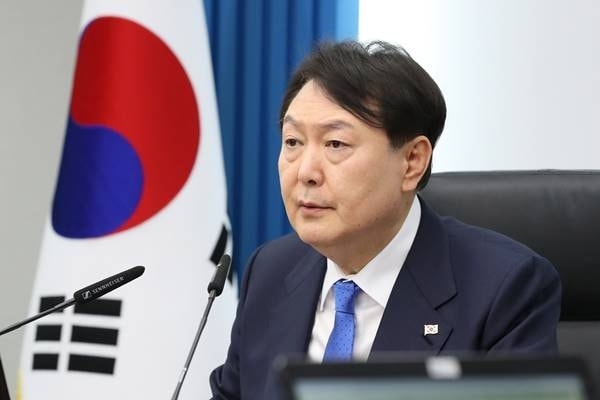The Constitutional Court of South Korea announced that it has initiated judicial proceedings for the impeachment trial of President Yoon Suk Yeol.

The Constitutional Court of South Korea announced on December 16 that it has initiated judicial proceedings for the impeachment trial of President Yoon Suk Yeol and will hold the first hearing at 2 p.m. on December 27 local time.
The decision was announced by the Constitutional Court during a meeting of judges held on December 16 to discuss procedures and decide on a date for a hearing to consider relevant arguments and evidence.
The subsequent hearings and trials will all be held in public and President Yoon will have to attend them, except for the first hearing on December 27.
The move came after the South Korean National Assembly on December 14 passed a motion to impeach President Yoon for abuse of power and attempting to impose martial law on the night of December 3.
In addition, the National Assembly has also suspended President Yoon from office. Chairman of the National Assembly's Judiciary Committee Jung Chung Rae has also submitted a resolution to the Constitutional Court to impeach the president.
The Constitutional Court said it has set up a task force of about 10 people to review the facts and related legal issues to provide full details to the judges during the trial and decision-making process.
The court will send President Yoon a copy of the impeachment request and ask him to respond, although this is not mandatory.
Regarding the vacancy of three out of the current nine judges, the Constitutional Court said it can proceed with a trial with a six-member panel but requires the consent of all six to proceed with impeachment.
Meanwhile, South Korean parties have selected candidates for three vacant positions and a special National Assembly committee has been established to hold confirmation hearings to appoint the three candidates.
If approved by the National Assembly, Acting President and Prime Minister Han Duck Soo will officially appoint the new judges.
The National Assembly currently plans to complete the appointment of the three remaining judges by December 24, before the year-end holiday.
According to regulations, the Constitutional Court has a maximum of 180 days to issue a verdict and if the court approves the impeachment resolution, President Yoon will be removed from office, becoming the second president in South Korean history to be removed from office after Park Geun Hye in 2017.
In this case, South Korea will hold a new presidential election within 60 days. While awaiting the verdict, presidential power has been temporarily handed over to Prime Minister Han Duck Soo to maintain national stability.
In a related development, on the same day, the prosecutor's office said a military court had issued an arrest warrant for the commander of the Special Operations Command, Lieutenant General Kwak Jong Keun, on charges related to the declaration of martial law.
With the decision, Mr. Kwak is the second military official to be arrested in connection with this incident, following the arrest of Lieutenant General Yeo In-hyung, head of the Ministry of National Defense's counterintelligence agency, on December 14.
Concerned that political turmoil could affect economic activities, Finance Minister Choi Sang Mok on December 16 advised corporate executives to continue to demonstrate active and proactive leadership, ensuring smooth business operations and that investment, export and recruitment activities are carried out as planned.
Minister Choi made the message at a meeting with representatives of the country's trade unions and industry associations.
TB (according to VNA)